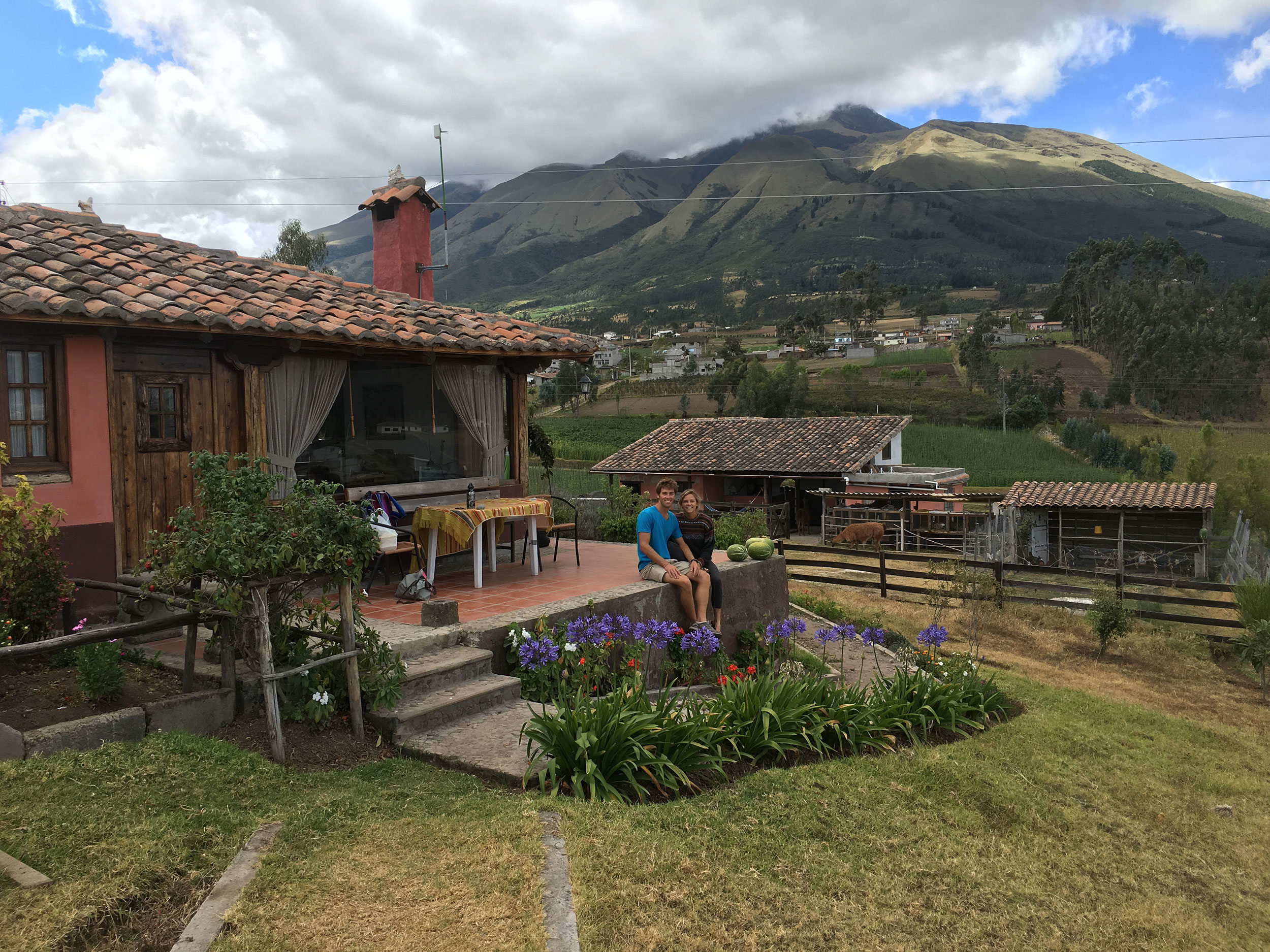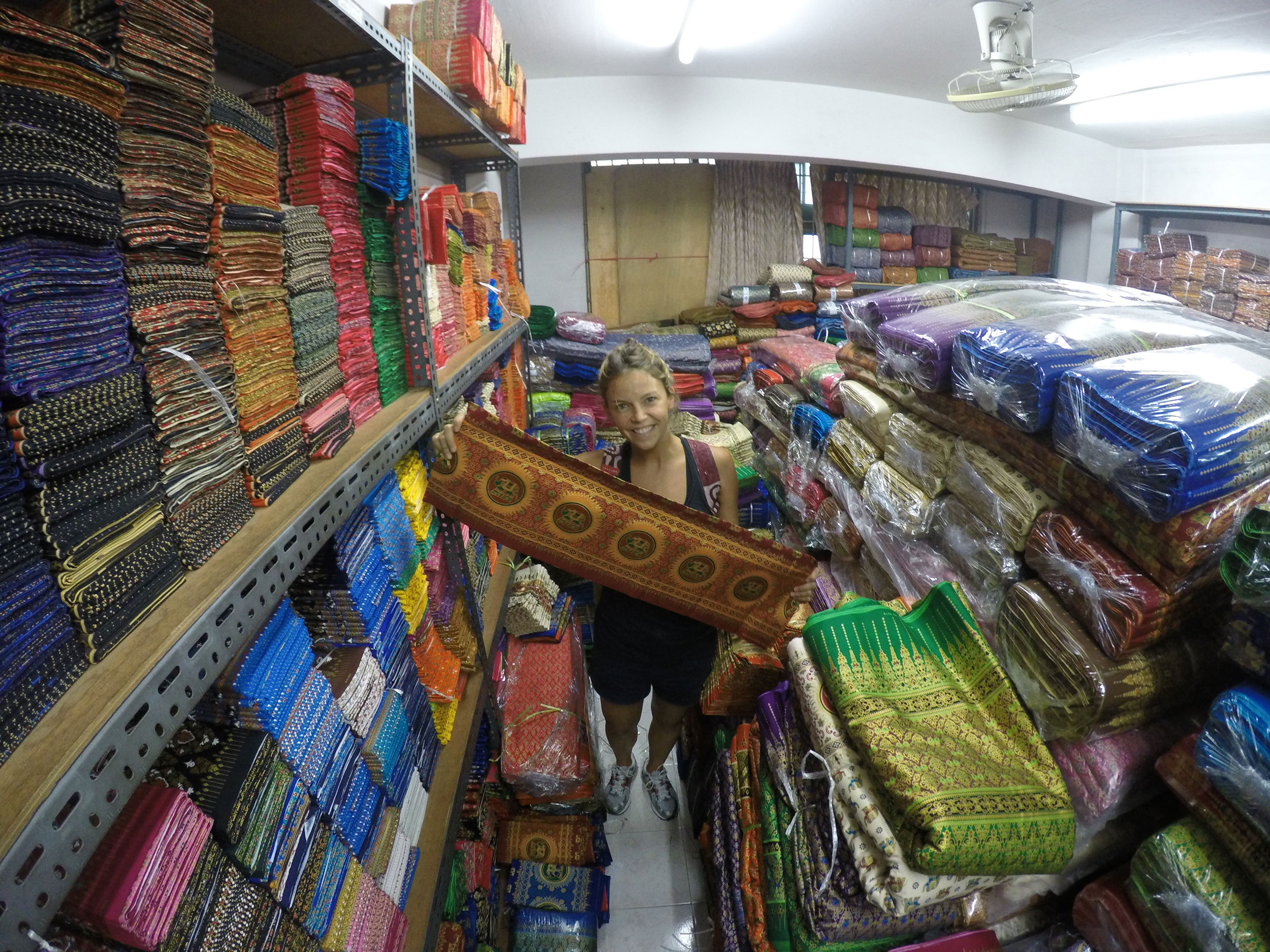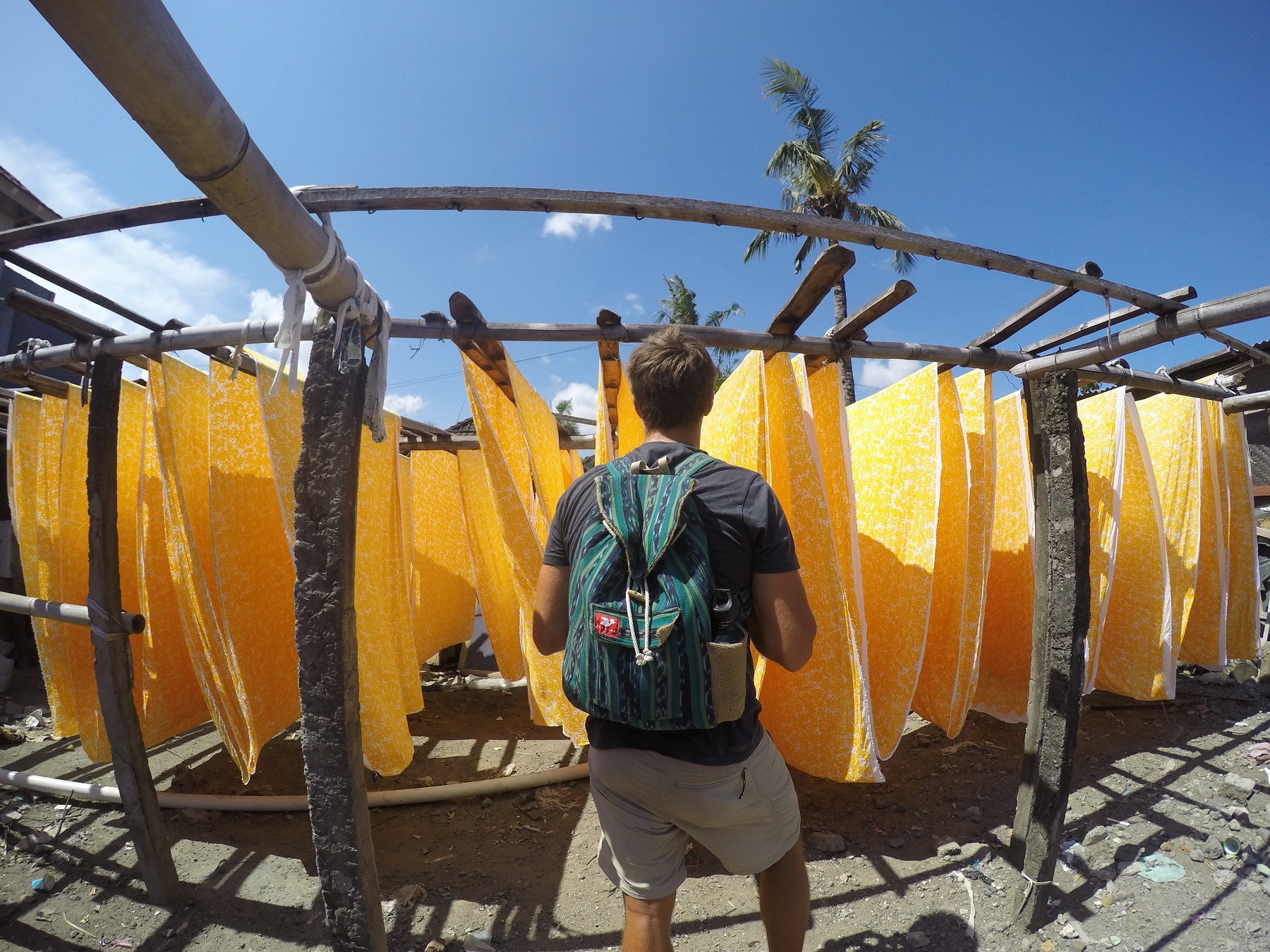Jordan Arbuckle might be racing across the Drillfield to class, but one glance at her backpack and the fabric it’s made from ,and she’s transported back to the summer she spent in Barcelona, Spain.
“By carrying my bag, I feel like I've connected Spain's lifestyle of relaxation to Virginia Tech,” said the junior studying human nutrition, exercise, and fitness. “Where I typically feel stressed out due to exams, with my backpack, I am reminded of a simpler life, and it almost calms me.”
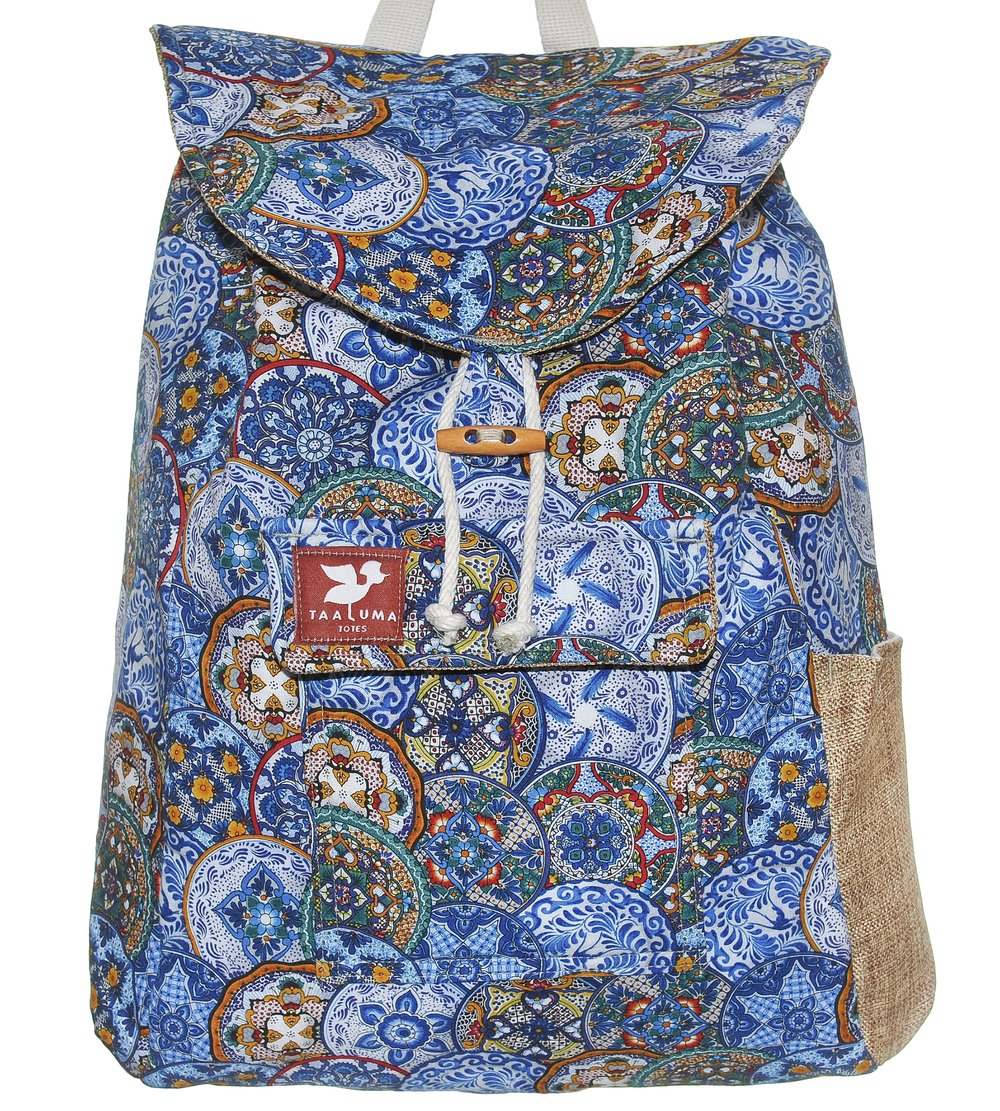
Jordan Arbuckle's tote
The feeling was what Tech alumni Jack and Alley DuFour had in mind five years ago when they founded Taaluma Totes, the company that crafted Arbuckle’s bag from traditional fabric the student found during her trip to study abroad, last summer.
“Our goal is to connect the world and make it feel a little smaller,” Alley DuFour said.
Since 2012, Taaluma Totes has sold thousands of bags created from overseas fabrics and used a portion of its profits to help people living in those same international communities. The manufacturing of the totes, which is done by a nonprofit in Southern Virginia, has also helped support dozens of jobs for workers with disabilities.
In February 2015, the altruistic business model earned the husband and wife team a spot on the reality television show, Shark Tank. The national exposure created such a surge in demand, the couple began turning to fellow travelers, such as Arbuckle, to locate new fabrics.
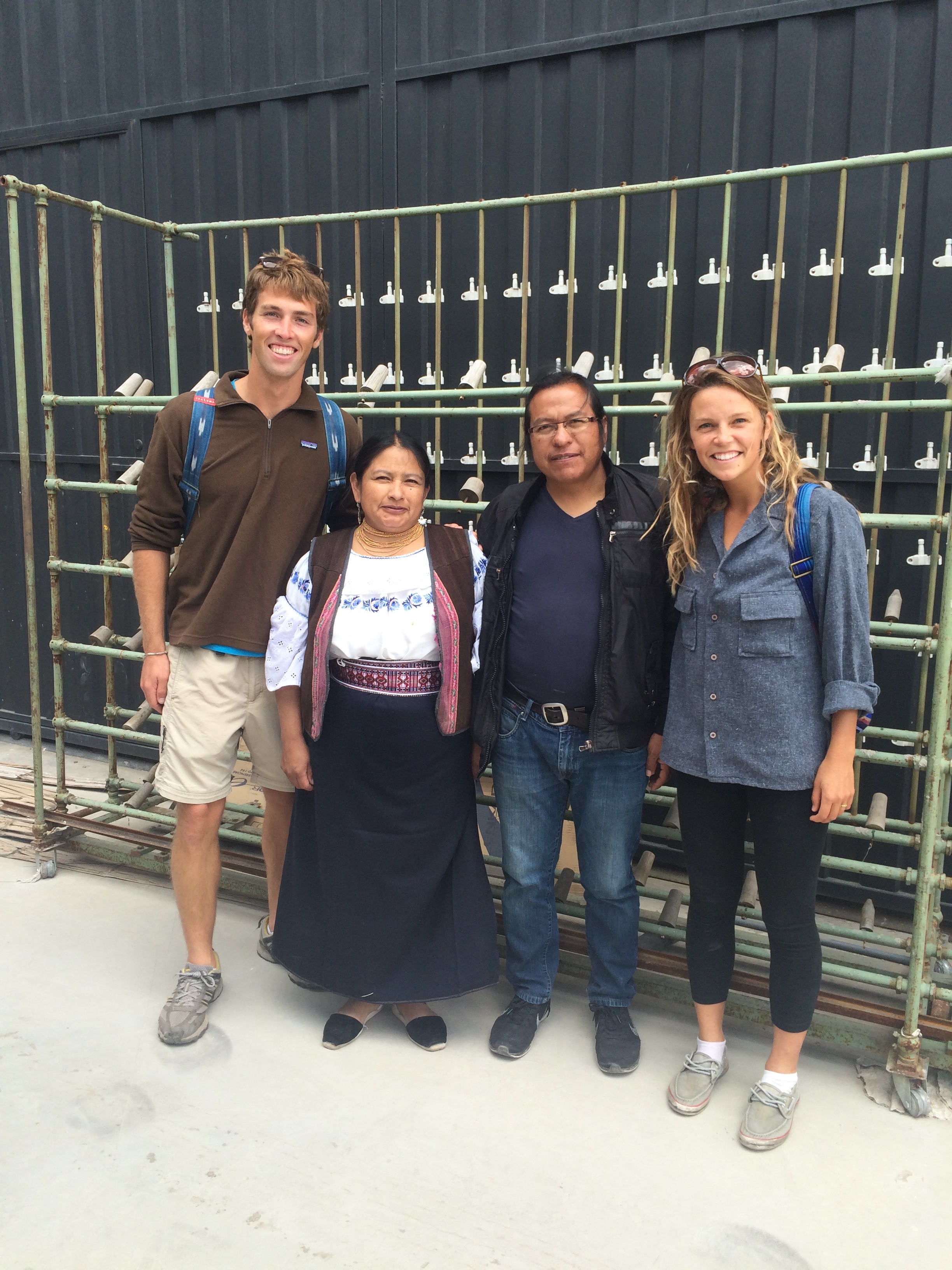
Jack and Alley DuFour with the owners of a fabric shop in Peguche, Ecuador.
Being in the national spotlight may have helped the company reach new heights, but the couple agreed it was their experience as Hokies that provided the foundation for their success.
“The Virginia Tech community was our incubator–giving us everything we needed to start Taaluma,” said Jack DuFour (mechanical engineering ‘12).
It was during Virginia Tech Engineers without Borders trip in Uganda when the Dufours, then students, took the first steps on their journey into the backpack industry. Desiring to bring back a piece of the country, they found a local fabric they felt perfectly depicted the culture. Alley DuFour had a portion of it made into a skirt; Jack DuFour opted for a backpack.
“And the idea really snowballed from there,” Alley DuFour said.
The couple returned to Blacksburg with an idea, but without the skillset or expertise to make a bag or launch a business.
From the legal paperwork to the actual crafting of their first tote, an extensive network of mentors in and around the university enabled the couple to bridge those gaps.
“I think without the Virginia Tech community we would have just left it as an idea, but instead there were people there who helped us turn it into a reality,” said Alley DuFour (civil engineering ‘13).
With a prototype in hand, the DuFours began to look into different options for large-scale production, ultimately choosing to build the bags stateside in hopes of helping provide jobs for Americans.
The couple connected with a Farmville, Virginia-based group, STEPS Inc., which operates a factory in Victoria, Virginia, that provides employment for people with disabilities.
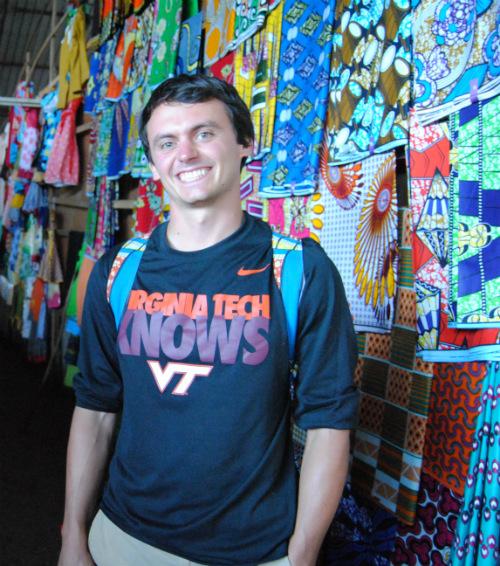
Michael Harnisch in Spain
“They’re a cornerstone for our sewing and manufacturing operation,” said STEPS Inc. President and CEO, Sharon Harrup. “It’s been a phenomenal experience for our not-for-profit.” STEPS Inc. produces a variety of fabric-based items, which are manufacutured by a workforce of around 30 employees, half of whom have some form of disability.
The DuFours priced the totes at $65 with the promise that 20 percent of their profits would be returned to the country of the fabric’s origin as a microloan for a small business owner or farmer homeland through the San Francisco-based nonprofit Kiva Lending Team. The DuFours charge no interest, and when the loan is paid back within a year, they invest the money in more fabric from the same country.
In 2014, the DuFours applied for Shark Tank. More than a year later, they were invited to appear. Although none of the “Sharks” chose to invest in the company, citing it’s youth as a weakness, all were impressed with the couple. One investor even suggested they weren’t charging enough for their product.
The experience was not a loss, though. The television appearance created so much demand that the DuFours decided to create a new line of totes created from fabrics secured by other travelers. For their efforts, each supplier earns a free tote created from the fabric, and $10 for each tote sold .
Like Arbuckle, Michael Harnisch (marketing and business information technology ‘16) took advantage of the opportunity during a study abroad trip to Rwanda.
Harnisch said he loved this method of staying connecting to the world he experienced during his trip.
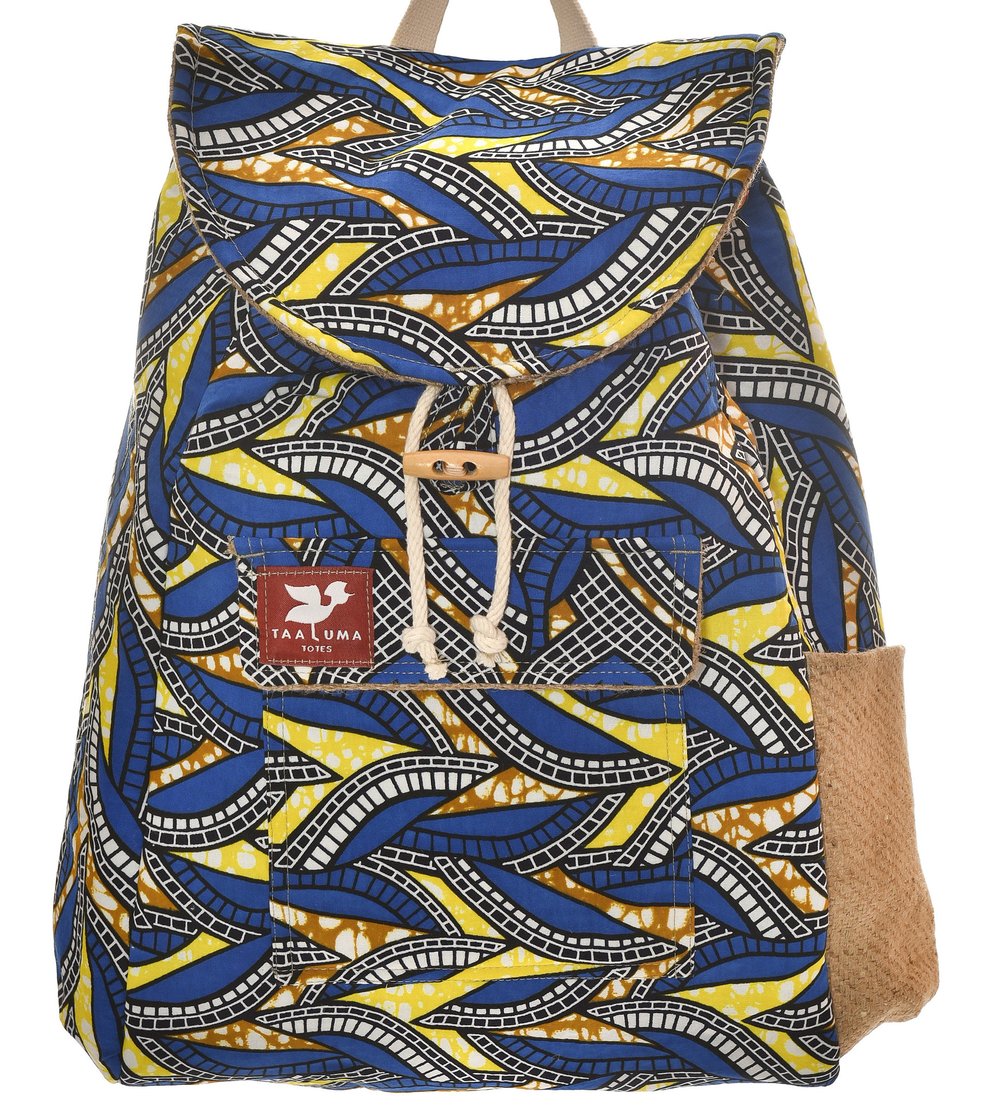
Michael Harnisch's tote
“You throw your bag over your shoulder, and you can remember all of the experiences and people you met,” he said.
He said that he also very much enjoyed being a part of a project with fellow Hokies. “Honestly, I’m not sure I would have ever heard of it if not for the Tech alumni connection,” Harnisch said. According to Jack DuFour, allowing others to become suppliers has furthered the Taaluma Totes mission of creating a global community.
“We’re trying to connect the world in a subtle, but significant way. Giving people a nudge to wander off the beaten path in search of fabric often leads them to their most authentic experiences. These authentic and genuine interactions with local people connect us in a way that typical tourist attractions don’t,” Jack DuFour said.
Story by Travis Williams
